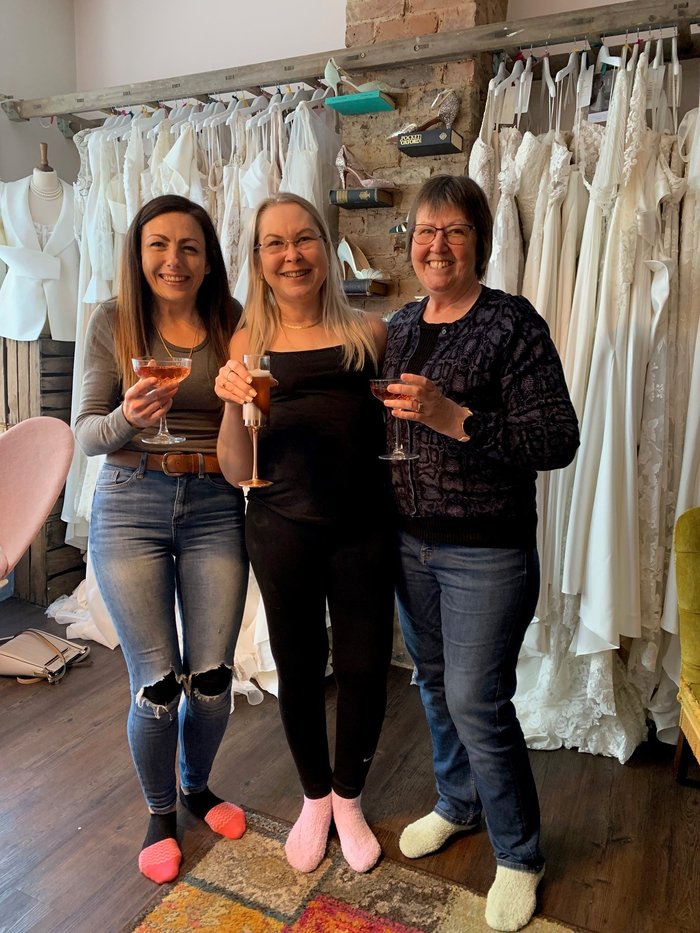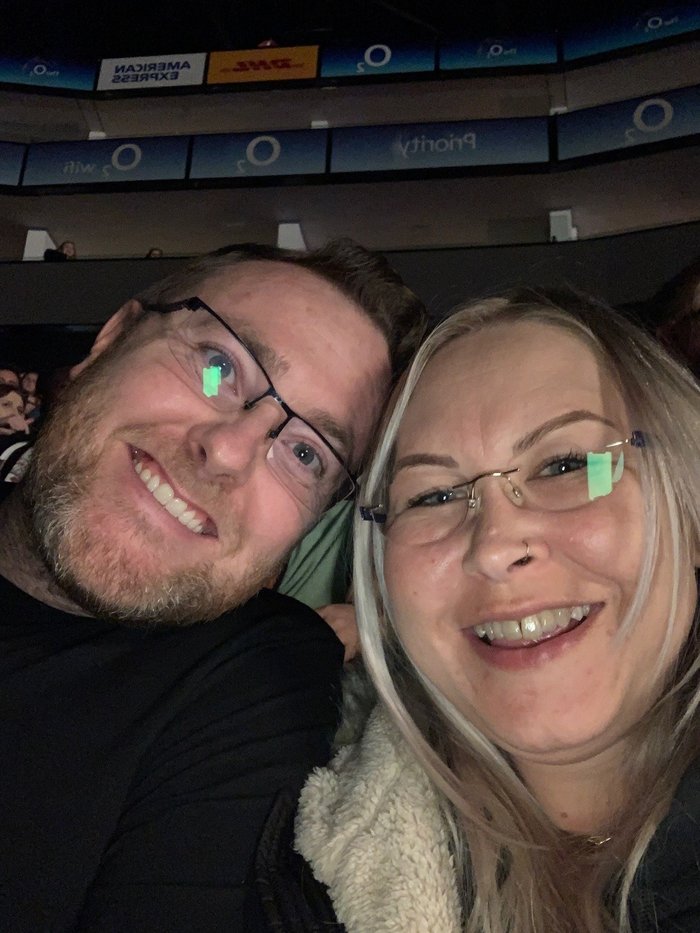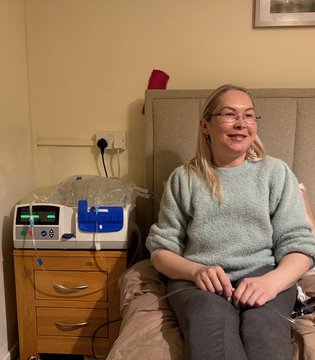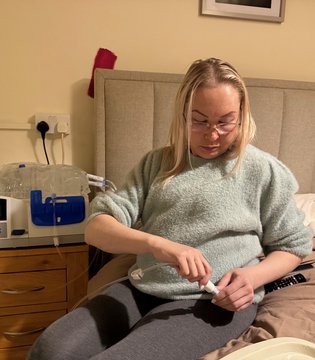No matter what this disease throws at me, I still live a happy life. I suppose CKD has given me an inner strength.
Diagnosis, transplants and dialysis
"I was diagnosed with IgA nephropathy (IgAN) when I was 10. I spent six weeks in hospital, receiving peritoneal dialysis (PD) and haemodialysis (HD), and I continued PD at home for another month. My kidneys then woke back up and I was able to live without dialysis until my mum donated a kidney to me when I was 15 years old.
"That kidney lasted seven years, and then I went back on HD for another nine years. I did in-centre HD for about five years and then home HD, but I found haemodialysis awful. Then I had my second transplant, which lasted around five years and failed in February 2024. I am now on PD, which is tolerable.
"The first year of PD was difficult but now I can live quite well on it, and I find it easier and far less stressful than HD. I started with continuous ambulatory peritoneal dialysis (CAPD), with four exchanges per day. That was hard going, especially on my partner – it felt like I was trapped in the house so much.
"Recently, my kidney team suggested night-time automated peritoneal dialysis (APD). I was hesitant because that was the kind of PD I had as a child and that experience was horrible, but my team assured me it would be better for me in the long run. So, I swapped to APD, and it isn't as bad as I remembered!"
Lea with her APD machine
Issues with prescription charges
My GP never contacted me to explain why they wouldn't sign the form [for free prescriptions]. I think that if he had spoken to me, he would have seen my point of view. I wonder if he even knows what having PD treatment means.
"I never had an issue with getting free prescriptions at any point when I was on HD or when I was post-transplantation, but when I started PD, I was told I was no longer exempt from paying for my medications.
"To get free prescriptions, you have to fill and sign a medical exemption certificate and then give that to a healthcare professional to co-sign. When I started PD in February 2024, I still had a previous medical exemption certificate, but it ran out in October 2024. So, I got a new form from my GP surgery and filled it out.
"On the form, it that explains that you are entitled to a medical exemption certificate if you have a 'fistula which needs continuous dressing or an appliance'. I figured that I need to sterilise and clean my PD tube every other day, so I ticked that section. A few days later I was told that my GP had refused to sign it off.
"I was in total shock, and I started panicking when I was denied the exemption. My GP didn't even talk to me about it, it was all done through the receptionist. I explained to the receptionist why I thought I should be exempt, but I was just told that I wasn’t eligible. They told me that because all the equipment I need for PD is provided through hospital, that it wasn't anything to do with the GP surgery and they suggested I ask the hospital to co-sign. I felt like I was just left on my own to figure it out.
"I rang my PD team, and they told me that they were happy to sign the form. It was a relief, but I was angry that I had been messed around. I got the impression from my kidney team that is a regular occurrence for people with PD. Thankfully, I managed to get it sorted before I had to start paying for my prescriptions.
"My GP never contacted me to explain why they wouldn't sign the form. I think that if he had spoken to me, he would have seen my point of view. I wonder if he even knows what having PD treatment means.
"I think it's crazy that my GP decided that receiving haemodialysis means I was exempt from paying for prescriptions, but having peritoneal dialysis didn't. That is what I find unfair. With PD I have a tube in me all the time, I am more at risk of infection, I have to sterile clean around the tube. Why would I not be entitled to a medical exemption from paying prescription charges?
"I'd like PD to be recognised as being worthy of exemption by everyone. A lot of people just accept what their health professional says but I wasn't going to stand for it. I can't understand why my GP said that my PD wasn't covered when it is keeping me alive. If I didn’t do dialysis, PD or HD, that would be the end of me."

Living with CKD and looking to the future
"I think the most challenging aspects of living with CKD is that it can touch or change every aspect of your life. I had to give up my career when my first transplant failed, I have been told it could affect my ability to safely have children. As a teenager I had an idea about how I wanted my life to be, but I have had to completely change those 'wants'.
"There isn't a lot of good that has come from living with CKD, but my fiancé and I have become even closer after dealing with my second transplant failing and restarting dialysis. I have learnt to be thankful for what I have in my life like my relationship, family, having a home, eating good food.
"My advice to someone living with CKD is to take each day as it comes – you don't know what your situation will be tomorrow, let alone next year! No matter what this disease throws at me, I still live a happy life. I suppose CKD has given me an inner strength. I think everyone has their own challenges and kidney disease is mine. I am a kidney warrior."


